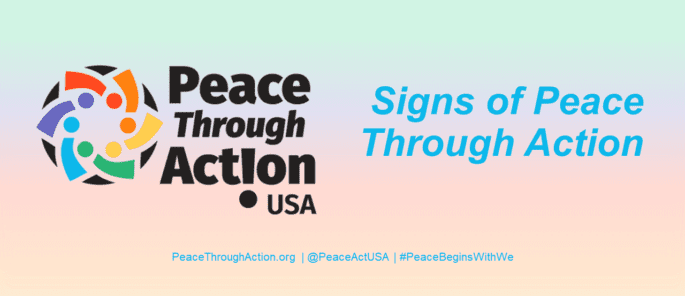
by Chris Walonski
Participating in southern Maryland’s “The Big Conversation 2022–Living and Coping with Trauma: The Unseen Force” provided me with the special opportunity to reflect on my personal relationship to racial trauma and the systems that derive benefit from racism. The Partners for Dismantling Racism in Southern Maryland opened the event with brief presentations from Dr. Jules Harrell, professor of clinical psychology at Howard University, and Dr. Kevin Washington, associate professor and head of the sociology and psychology department at Grambling State University. After a brief Q+A session with the panelists, our group of over 100 participants from southern Maryland then engaged in small breakout conversations that plumbed our personal experiences with racism and explored possible solutions to address trauma in our communities.
While this experience offered me a broad range of insights across a variety of social, cultural, and historical domains, here are four significant personal “Ah-Ha” moments from this year’s The Big Conversation.
Racial trauma is (among other things) a public health concern.
While racial trauma encompasses a diffuse array of psychological and psychospiritual stressors, the experience of racial trauma simultaneously causes physical harm. Dr. Harrell and Dr. Washington both discussed how a range of physical health issues can be linked to and negatively influenced by racial trauma, including hypertension, high blood pressure, and heart disease. As the director of programs and partnerships development and delivery at Peace Through Action USA, I am fascinated to explore how our future work to address racial trauma might result in both psychological and physical outcomes.
Therapeutically addressing racial trauma requires an attention to both the personal and social dimensions of one’s life experience.
In order to effectively work towards healing racial trauma, we must attend to each individual’s unique life experience, while also acknowledging how the personal journey is nested within a wider social context. The Big Conversation provided an opportunity for community members to share their personal stories and to critically reflect upon their commonalities, alongside their differences. As we develop projects at Peace Through Action USA, I hope to create programs that engage similar opportunities to highlight both the personal effects of racial trauma and the social drivers that perpetuate racism.
Racial trauma is an intergenerational process.
In participating in this event, I was struck by how racial trauma engages an intergenerational legacy that both echoes the past and presents emergent contemporary problems. While we must recognize the significant material opportunities and social barriers that racism has produced, Dr. Harrell and Dr. Washington urged the group to consider how “reparations” involve more than a mere monetary contribution. Instead, we must work to socially “repair” the current systems of oppression that promulgate racism and racial traumatization. Dr. Washington went on to explore how epigenetics research suggests that trauma may have a hereditary capacity. As a result, I and many other people in the group considered what actions we can take in our communities now to ensure the wellbeing of our future children. As we move forward in developing Peace Through Action USA’s youth development activities, I am inspired to present racial trauma as a necessary consideration and social pre-condition that affects the individuals with whom we work.
Exchanging stories and engaging in dialogue open pathways towards healing.
The most poignant takeaway of The Big Conversation for me was that it affirmed the power of communication. Every personal story shared throughout the day offered the possibility for personal and social healing. As an active participant in this dialogue, I felt my identity as a cis-gendered white male cast into relief and this event held a safe and compassionate container for me to examine my relationship to the matrix of social systems that perpetuate racism, while simultaneously bestowing me with privilege. That said, this event taught me the power of listening. By hearing the personal journeys of individuals in my breakout room session, I felt empathically bonded to the wider social analysis presented in the earlier portion of the event. In developing Peace Through Action USA’s Peaceful Readers, Peaceful Speakers, and Featured Peacebuilders initiatives, I aspire to continue valuing the power of listening. And I seek to create more opportunities for community members to share their personal experiences.
Attending The Big Conversation not only offered me North Stars to guide the direction of my work at Peace Through Action USA, but it also gave me insight into the lived challenges of people in Calvert County. I strive to carry these lessons forward into our peace education programs and I am eager to incubate and implement possible solutions to address racial trauma in our local partnerships across the nation.
Chris Walonski is Peace Through Action USA’s director of programs and partnerships development and delivery.
Do Something Right Away to Increase Peace
Sign up for our email
Post our website to Facebook
Tweet our website
Post our website to LinkedIn
Subscribe to our YouTube channel
Give money to support Peace Through Action’s mission delivery activities
Choose opportunities to take part in our #PeaceBeginsWithWe campaign

Respond